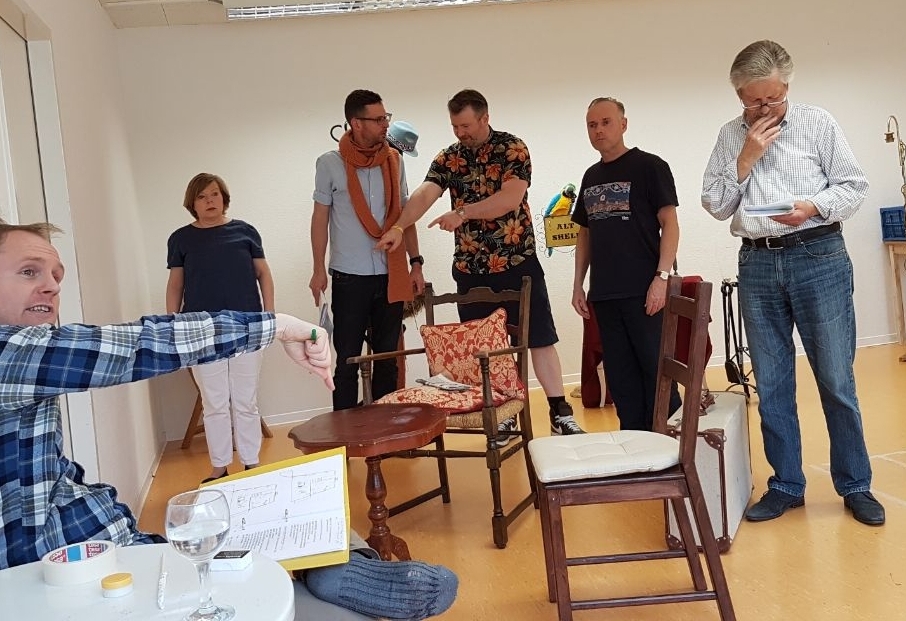Remember December 2020? We do! It was when rehearsals for Annie Wobbler, our next production, began. Considering it is a one-woman show, we figured that despite the contact restrictions already in place we were pretty much all set to get it up and running for February 2021. Little did anyone know…
“Unlike anything I’d ever done”
Rebecca Garron. Joanna Thorn, and Jason Couch
While the two directors, Rebecca Garron and Jason Couch, went to work with Joanna Thorn, who plays all three female characters in Annie Wobbler, it slowly became clear that Covid protocols would need to remain in place for a while. So, instead of getting together the entire crew, rehearsing one-on-one it was.
“The rehearsal process was unlike anything I'd ever done before. For starters, I've never been in a play where there were more directors than actors involved!” Joanna recalls. “Theatre is a communal pursuit and normally cast and crew are together during rehearsals. Despite it being quite a solitary time, I really enjoyed being able to workshop and play around with the characters and themes of Annie Wobbler and then bring these ideas together in the periods where the lockdown was eased.”
An impressive feat of ingenuity by the team
As you can imagine, planning, let alone actually doing, on-one-on rehearsals proved to be quite a challenge, not having set and costume designers, the props department and the prompts in the same room. “I was enormously impressed at our team's ingenuity and commitment in such a difficult situation – but it was hard and slow-going,” says co-director Rebecca. “Without everyone in the room, the creative juices flow much more slowly and you miss the give and take of the production process. It felt very isolating for everyone involved. What can I say? Theater is an eminently social art!”
Under the circumstances, the crew made up for it as much as possible by meeting up via video conference – and despite his protestations at never having used Zoom before, Jason did fare more than well during online production meetings. “But it wore me down”, the co-director concedes. “Don’t get me wrong, it was really great working with Joanna! But the creative process was much less fun without having instant feedback from the team. Theatre, I've realised, is more of a social event for me. Which is why I really hope people will be able to see this play as live performance soon.”
Ready to go on stage
Directors, cast and crew finished rehearsals and production preparations in March and cannot wait to brush up scenes and tweak the show. How and when you can see Arnold Wesker’s Annie Wobbler depends on when restrictions will allow for the crew to get together. Watch this space or our social media channels for more info.
Photos: Herwig Lührs





















